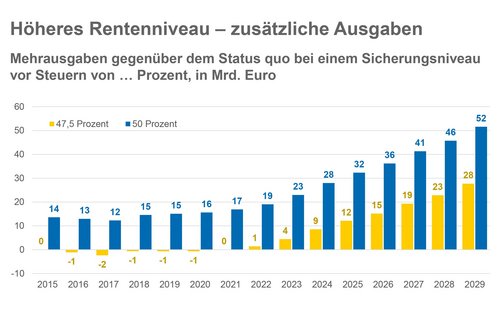The neglect of public investments in Germany and elsewhere has not only led to a deterioration of countries’ public capital stocks. In fact, what appears as an aggregate decline actually entails growing divergences between regions that can invest in their infrastructures and those that fall behind.
Workshop of the MPIfG and the German Economic Institute: Local Matters: Regional Inequalities in Public Investments

The neglect of public investments in Germany and elsewhere has not only led to a deterioration of countries’ public capital stocks. In fact, what appears as an aggregate decline actually entails growing divergences between regions that can invest in their infrastructures and those that fall behind.
Such palpable differences in the provision of public goods have deeper causes in structural economic change, the workings of political institutions, and the distributional politics of austerity. But regional inequalities also have significant consequences, which reach from entrenched competitive disadvantages for left-behind areas to the formation of new political cleavages. This raises fundamental challenges for policy makers and researchers. First, it is important to better understand what mechanisms lead to regional differences in public goods provision. A related question is which policies might be effective in addressing these differences. Examples for such policy efforts are the European Union Cohesion policies, the “Levelling-Up” agenda in the United Kingdom, and the so-called “coal compromise” (concerning the fading out of coal production) in Germany. Secondly, we aim to discuss the political repercussions of regional inequalities, especially in the domain of political attitudes and electoral behavior. Presenters will report on new and ongoing research on these issues, and we will discuss which research questions will deserve particular attention in the upcoming years.
Date
26. November 2021
Venue
Max-Planck-Institut für Gesellschaftsforschung
Paulstr. 3 | 50676 Köln
Organisation
Björn Bremer
Max Planck Institute for the Study of Societies, Cologne
bjoern.bremer@mpifg.de
Matthias Diermeier
German Economic Institute, Cologne
diermeier@iwkoeln.de
Leon Wansleben
Max Planck Institute for the Study of Societies, Cologne
leon.wansleben@mpifg.de
Link to the event homepage and program

Reform der Alterssicherung im demografischen Wandel: Aufgaben für die nächste Legislaturperiode
Das Jahr 2017 steht im Zeichen der Bundestagswahl, deren Ausgang auch für die Alterssicherung richtungsweisend sein kann. Denn die nächste Legislaturperiode wird die letzte sein, bevor die Baby-Boomer nach und nach in den Ruhestand wechseln. Noch besteht die ...
IW
Der Investitionsstandort D vor strukturellen Veränderungen
Die deutsche Volkswirtschaft hat sich in den vergangenen Jahren außerordentlich stabil entwickelt. Für die nähere Zukunft stellen sich jedoch Herausforderungen, die nicht früh genug angegangen werden können: Die demografische Entwicklung führt zwar nicht zu ...
IW